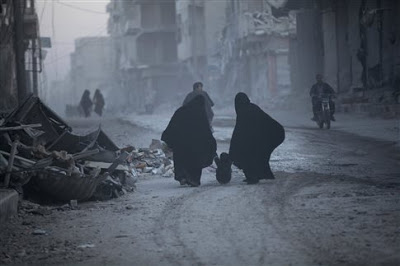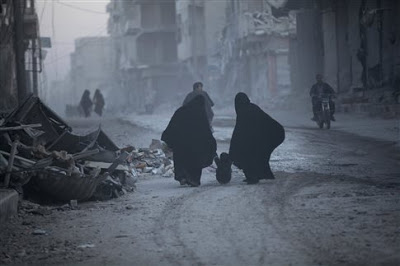Since the start of the war in Syria in 2011, life expectancy in the country has dropped by 20 years. 13,5 million people are in need of humanitarian assistance, while 6,3 million have been displaced within the country.
Hundreds of thousands have embarked on dangerous sea voyages, seeking refuge. Nearly 3 million children under the age of 5 have grown up living the war alone.
The UN High Commissioner for Refugees calls on the international community to increase its support for the Syrians.
"The war in Syria is not about numbers, it is about people. This is a collective failure. "
"Syria is at a critical juncture," said Philippe Granty, the UN High Commissioner for Refugees. "Unless drastic measures are taken to support peace and security in Syria, the situation will worsen."
In Syria, 13,5 million people are in need of humanitarian assistance, while 6,3 million have been internally displaced. Hundreds of thousands have embarked on dangerous sea voyages, seeking refuge.
Nearly 3 million Syrian children under the age of 5 have grown up living the war alone. About 4,9 million - most of them women and children - are refugees in neighboring countries, putting host countries under enormous pressure as they shoulder the social, economic and political consequences of such hosting, the UNHCR explains.
"Ultimately, the war in Syria is not about numbers, it is about people," Grady added. "Families have been broken up, innocent civilians have been killed, houses have been demolished, businesses and households have been destroyed. This is a collective failure. "
Strengthening the UNHCR to the victims
In 2016, UNHCR supplied essential winter items to over one million Syrians. Last year, more than four million people in Syria received basic necessities such as food, medicine, blankets and kitchen utensils. More than two million have benefited from the network of UNHCR community centers in Syria, which provide a variety of services, including, but is not limited to, protection, education and healthcare for children.
In the wider region, more than three million displaced Syrians and refugees have been rescued to survive the icy winter. UNHCR and its partners have assisted nearly five million Syrian refugees, as well as those hosting them. This assistance includes protection and relief measures, such as the provision of education, health care and housing in the five main refugee countries in the region.
Funding is not enough
While vulnerabilities increase over time, funding unfortunately falls short and does not meet needs, the agency said. The conference to be held in Brussels in early April will assess the situation for the future of the country, as well as the needs for humanitarian funding.
The United Nations is asking for $ 8 billion this year to meet the needs of Syrians in the country, as well as in exile. This call follows the important commitments made at the 2016 London Conference, in particular on education and livelihoods, and is vital to sustaining these efforts, the UNHCR said.
"We urge donors to maintain adequate and flexible funding, which will enable us to meet our enormous needs," said Grady. "Funding will not end the hardships. But it is at least something we can do as poverty and misery increase. The resources we have now are simply not enough to cover all the needs. "
Source: news.in.gr

